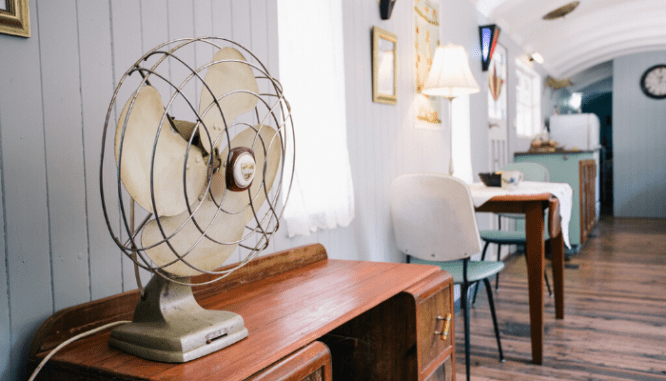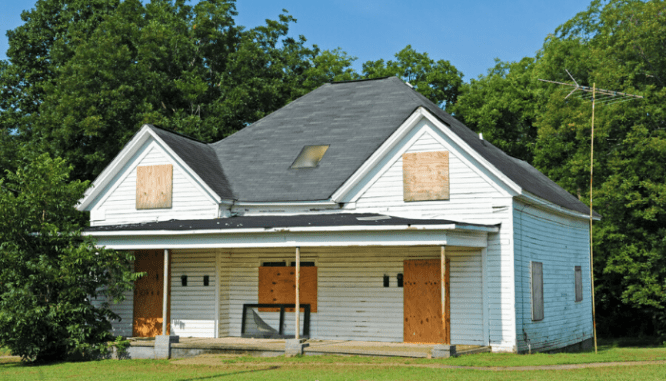Five Steps to Begin Your Real Estate Investment Journey
- Published on
- 5 min read
-
 Sally Tunmer Contributing AuthorClose
Sally Tunmer Contributing AuthorClose Sally Tunmer Contributing Author
Sally Tunmer Contributing AuthorSally Tunmer is a writer and content strategist with 10 years professional experience focusing on real estate, travel and the lifestyle and culture of places. She was the former editor of the official New Orleans tourism blog and is a regular contributor to neighborhoods.com. Sally is currently based in Atlanta where she drinks wine, listens to music and writes about both on her personal blog.
You’re sitting on the couch watching yet another house-hunting, fixer-upper, or home improvement show while saying to yourself, “must be nice.” You gaze at the screen, admiring and envying the bright-eyed, spunky investors making their next real estate venture. You laugh at the notion that could ever be you.
Well, think again. Those days of daydreaming are over. We’re going to tell you how to make it happen for real.
If you’re just starting out, you likely don’t have a wad of cash to invest or a clear idea of what the best play is. Well, you’re in luck: we are going to show you exactly what to do based on how much money you have and what you want to get out of the experience. The rest is up to you!
“The no. 1 thing I tell investors is try to invest where they live,” says top-selling Augusta, Georgia, agent Natalie Poteete. She says it’s important to know the area you’re investing in so you can better determine the best time to buy or sell based on the rising or falling of home prices where you’re located.
So, other than starting with what you know, what else? Find out how to start investing in real estate in five steps.

Step 1: Know your investment level
Before you start your real estate investment journey, you’ll need to evaluate how much it takes to make your first investment and then decide which is the best route based on your available funds. The good news is, getting started at the jumping-off point doesn’t really take much, and then you can work your way up the real estate investment ladder.
You don’t need to be a millionaire to invest in real estate. You can invest as little as $500, or more than $50,000, depending on your financial situation and investing goals.
Step 2: Know your risk level
Real estate is a great long-term investment with lots of possibilities for financial returns. However, it does come with risks, as most investment opportunities do.
These are some questions you’ll want to ask yourself when assessing your own level of risk associated with each type of investment:
- If your investment includes renting out part of your primary residence, are you comfortable with allowing potential strangers to stay short-term or long-term?
- Are you prepared for downturns in the housing market, such as increased mortgage rates or falling home prices that could affect money you’ve invested in real estate investment trusts (REITs) or your ability to sell a renovated home for profit? If that happens, are you willing to wait it out until the market stabilizes?
- Are you prepared for the repairs, maintenance, and possible tenant issues that come with owning a rental property? If a tenant breaks their lease or you have vacancies, do you have the highly recommended six months of rental reserves available to cover costs?
When considering the risks of real estate investing, it’s also important to know how they can be combated.
If your investment is a rental property and you have the funds to do so, hiring a reputable property manager is a wise idea if your time, desire or capacity to make repairs is limited.
“It’s usually good to buy something that’s a little bit newer so you don’t have to worry as much about maintenance,” says Poteete. That doesn’t mean it has to be a big house in the fanciest neighborhood — just something that won’t require a ton of labor.
To mitigate risks such as a drastic change in the housing market, a scarcity of reliable tenants, your liability if someone hurts themselves on your property, or any other dilemma, you should purchase the property through a LLC to protect your personal assets.
Step 3: Ask yourself if liquidity is important
Liquidity is the ability to turn your investment into cash. When considering how to start investing in real estate, ask yourself what you are using your investment for and how quickly you need to turn a profit. That will inform what type of investment to pursue.
If you need immediate cash flow
There are two main ways real estate investments make money. The first is producing cash flow. This type of investment starts making money in the first month and delivers steady revenue. This would be your best strategy if you need to make short-term profits that will put money in your bank account right away for things like saving up for a down payment on your dream home or paying off debt, like credit cards or student loans.
Cash flow from real estate investments comes from rental properties and renting out your own home.
If you’re playing the long game
The other way to make money from real estate investing is property appreciation, or the increase in value of a home over a period of time. If your intention is to achieve a long-term goal, like purchasing a “move-up home” in the future or to fund your retirement, investing in real estate to accumulate equity is the way to go. This avenue is for those investors who are willing to wait for returns.
The options for appreciation investing include both buying your own home or a rental property to then sell once its value has significantly increased. When buying a rental property to sell later and lease out in the interim, you’re making both a short-term and long-term investment.
According to HomeLight’s Top Agent Insights from the second quarter of 2019, “The CoreLogic Home Price Index report found that home prices increased 3.6% year-over-year in April 2019 and projects prices to rise by 4.3% in 2020.”
Multi-family homes with two to four units make 18% of the country’s rental housing stock and, in 2019, averaged 2.4% in return from capital appreciation nationally, including above-average returns in Las Vegas, Denver, and Washington D.C., according to CoreLogic. This is another benefit for investors who rent out these types of properties.

Step 4: Which is the best beginner option?
If you’re a real estate investment novice, there are low-risk, efficient options for newbies.
One perk of not having many funds to start investing with is that most of your options are relatively low-stakes and low-risk. You can start from the bottom almost instantly with quick returns.
If you want to dip your toe in the real estate investing pool, these are the best entry-level options to consider:
Rent out part of the house you already live in
This could include a guest room, basement or carriage house; you can share the common areas with your renter.
Costs may include making any improvements needed before welcoming a renter in your home and 1% to 4% of the value of the home set aside for repairs.
This is a low-risk option to start generating cash flow for immediately available funds, to help cover the cost of your mortgage, or to put into savings for your next investment.
Become an Airbnb host
This is essentially the same as the above option, except you will be responsible for cleaning up after guests (you can charge a housekeeping fee to cover this) and setting up for new guests.
As an Airbnb or Vrbo (an acronym for vacation rental by owner) host, you have control over what part of your house to rent out and when, whether that be only part of the house so you don’t have to leave during the guests’ stay, or the entire house that you vacate when guests are present on weekends, during the summer, or whenever you can leave.
Online crowdfunding investing
Certain real estate crowdfunding investing platforms, such as Fundrise and DiversyFund, allow as little as a $500 investment to get started. These are privately traded REITs.
There are some caveats to consider with this option, which include the fact that most of these apps charge fees ranging from 1% to 2.5% of their clients’ managed assets; though it’s fast to start, these apps can take a long time to produce significant returns; and the dividends from these investments may be taxed.
Step 5: Take the next step
Let’s say you made your very first real estate investment and totally crushed it. The bug bit you and you want more! Well, lucky for you, there’s always more opportunities to be had. Check out where to go when it’s time to make the jump from beginner to intermediate.
Buy a house
Whether it’s a bigger, better home you’re able to buy from the money made renting out your former home, or if you’ve saved up enough for your first home purchase, you’ll be building equity for your future.
Buy a rental property
This can be accomplished in two ways: investors can purchase a house exclusively to rent out to tenants, or they can purchase a multifamily property where they live in one unit and rent out the others, also known as house hacking.
The former option requires at least a 20% down payment and an investment mortgage loan, which comes with higher interest rates than primary owner-occupied mortgages — up to 0.5% to 0.75% more.
The latter option, depending on the price of the home, can be more affordable because it can be purchased for as little as 3.5% down with a FHA loan because it also serves as the buyer’s primary residence.
Invest in Real Estate Investment Trusts (REITs)
REITs are companies that own or finance income-producing real-estate, which pays out 90% of their taxable income to shareholders. Investors can purchase individual company stock through a mutual fund or exchange traded fund (ETF) of the stock market. ETFs do not require a $3,000 minimum investment, and the minimum investment for private REITs can range anywhere from $1,000 to $25,000.
REITs perform well for long-term dividends but are not good short-term options.

If you’re on a roll
When it’s time to graduate to the real estate investment big leagues, where can you go next? Here are the next-level real estate investment opportunities to keep in your back pocket for when the time comes.
House flipping
Buying houses that are below market value, usually because they need a little or a lot of TLC, and then fixing them up to resell — or flipping them — is very much on trend right now. According to CoreLogic, home flipping is at historic highs, steadily increasing since 2002. Returns on this type of investment can also be high, with the most profit ranging from 60% up to 95% in certain metro areas. The most profitable areas have the oldest housing, thus more fixer-upper contenders.
You don’t have to be Chip and Joanna Gaines to rock the fixer-upper game. You just have to know how to find these investment gems, says Poteete.
“Of course everyone wants to buy a house 30% below market value, but there are only so many of those properties out there, so you just have to be really savvy in your search. So that really boils down to an investor who is willing to pound the pavement.”
She says finding them is the trickiest part. Renovating and selling them for a profit is the fun part. “Once you find them, fixing them up and selling them is easy. Real estate agents are great at helping you sell them.”
Buy more properties
The next step to grow your real estate investment portfolio is to buy more properties if you can afford to do so comfortably, using the equity from the first property to help fund the next one. “You still have to put 20% down, but you’re able to roll some of your equity from your other properties into these new loans, and it can really help you be able to accumulate more in a small period of time,” says Poteete.
So, now you have a solid foundation for what it takes to start investing in real estate. That’s half the battle — understanding the expectations for how much to put in depending on what you want to get out of it.
As they say, you gotta spend money to make money. Whether that’s a lot or a little at this point in your life, there are always growth opportunities when it comes to real estate. Now you can be one of those people on HGTV, instead of just watching them!
Header Image Source: (Allie Lehman / Death to the Stock Photo)
